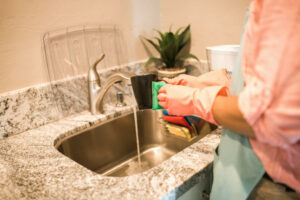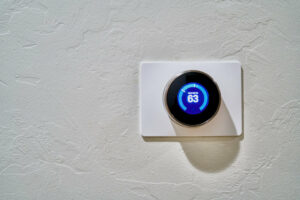
The cost of operating a home’s cooling system is often among the highest of any appliance category. During the warm summer months, the cost of maintaining a comfortable indoor temperature can cause your electricity generation or fuel costs to skyrocket. Nevertheless, there are ways to cut down on the amount of energy you use. Bringing your monthly heating and cooling costs down can be considered an improvement to your home because it will free up more money for you to spend on other things.
Air Condition Units in Comparison to Other Types of Devices
It is a smart option to compare the price of the cooling system to the expense of other household appliances so that you can get an inkling of how much the cooling costs are. In a typical house, you might find things like these:
- Refrigerator: R0.6per hour
- The cost of the washing machine is R2.3 per hour.
- The cost of using the dishwashing machine is R 3.4 per hour.
- Air-Conditioner: the rate is R5 per hour
Although it is true that a refrigerator runs continuously for the entire year and may be more expensive than an air-conditioning system, during the summer months, an air-conditioning unit may only need to run for eight hours per day, which results in a daily cost of R40.00. Multiplying that number by one month brings the monthly cost of operating an air conditioning unit to roughly R1200. Because a refrigerator only costs R10.44 per day or R430 per 30-day month, an air conditioning unit can cost almost three times the price of a refrigerator over the course of the summer months.
Washing machines are only used on an as-needed basis and may only be used for a total of three hours per week at the most. Dishwashing machines are used each and every day, though typically for no more than an hour at a time. Even over the course of the entire year, they might not cost more than an air conditioning unit would during the warmest part of the year. Additionally, if you have a reverse cycle air-conditioning system, it will heat the house during the winter and cool it during the warmest part of the year. Click here to get in contact with professionals who can assist you in making the right choice.
The Costs During The Hotter Months
The price of the home during the warm summer months will be significantly higher than that of any other device. Why does a higher number of stars indicate lower monthly cooling costs The ratings for the air conditioner range from one to ten stars. The following calculations are made on a ducted reverse-cycle air conditioning system that chills a home for three months out of the year for six hours and warms a house for four months out of the year for six hours:
- An air conditioning system with 5.0 stars and a reverse cycle would run about R20 000 more per year.
- An air conditioning system with 5.5 stars and a reverse cycle would have a yearly cost of approximately R20 376.
- A reverse cycle air conditioning unit rated at 6.0 stars would run approximately R16 530 more per year.
- An air conditioning unit with 7.0 stars and a reverse cycle would have an annual cost of approximately R16 112.
These estimates were derived using data from a single manufacturer of air conditioning systems. The prices listed above may not accurately reflect the costs of others. You can go online to find an Energy Cost Calculator and enter your postal code, as well as the type of air conditioning unit you currently have or are interested in purchasing, to find out how much different brands and models of air conditioning systems cost on an annual basis.
When compared to an air conditioner with a rating of 7.0 stars, an air conditioner with a rating of 5.0 stars will save you almost R4000 in annual energy costs. When that number is multiplied by 10 years, the amount of money saved is approximately R40,000. Stars with lower magnitudes will have an even lower impact, while stars with higher magnitudes will have a greater impact. The amount of space that needs to be cooled by an air conditioning unit will also affect the cost of the service:
- Some estimated prices are as follows: between R2.5 and R3.5 per hour for a small space
- R3 to R7 per hour for a space of medium size.
- R7 to R9 per hour for a large space
Even in a limited space, cooling can become prohibitively expensive when accounting for the number of hours being used on a daily and monthly basis. It is possible for the cost of a small space to be doubled in a medium-sized space, and it is possible for the cost of a small space to be nearly tripled in a large space.
You should try turning the thermostat up by one degree at a time, and you should hold back when the temperature seems to be at an uncomfortable level. If you are in the market for a new air conditioning unit, you should look for one that has an inverter design so that you can save roughly 40% on your monthly power bill. Do you really require the use of an air conditioner on a daily basis? A fan can effectively cool a room at a fraction of the price of an air conditioning unit. Fan cooling only requires the use of electrical electricity to power the fan, helping to make it a significantly more cost-effective cooling method than air conditioning.
The operating cost of a ceiling fan is only 2 cents per hour, which is a significant saving compared to the cost of air conditioning. ” An experienced electrician is required for the installation of a ceiling fan. However, the upfront and ongoing costs of installing ceiling fans are typically much lower than those of installing an air conditioning system.
Why Do You Want to Spend as Little as Possible on Air Conditioning?
Even though spending money is never fun, it might be necessary for certain circumstances, such as when the temperature is particularly high. It is possible that you will spend R16,120 annually on your air conditioning system if you get one with 7.0 stars and a reverse cycle. If you multiply that number by 10 years, you will find that your total investment is R160,120. If you follow the advice given above, you will be able to cut that number in half and have more money available for other purposes.
Simply lowering the temperature by two degrees will result in a 20% reduction in energy consumption. This 20% adds up to R32,240 over the course of ten years. When there is no need for air conditioning, using a fan can help you save even more money. If you are in the market for a new air conditioner, look for one that has an inverter configuration. This will help you save up to 40% more money. Have a look at the label that says “Energy Star.” It will disclose both one’s destiny as well as the amount of energy that is used by an air conditioning system.



